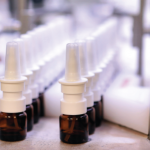Thomas R. Collins is a freelance writer living in South Florida.
References
- Furie R, Werth V, Merola J, et al. BIIB059, a monoclonal antibody targeting BDCA2, shows evidence of biological activity and early clinical proof on concept in subjects with active cutaneous SLE [abstract 2013]. Arthritis Rheumatol. 2016;68(suppl 10).
- Costedoat-Chalumeau N, Houssiau F, Izmirly P, et al. Predictive factors of adherence to treatment in an international prospective study of blood hydroxychloroquine levels in SLE patients with flares [abstract 2010]. Arthritis Rheumatol. 2016;68(suppl 10).
- Merrill J, Furie R, Werth V, et al. The effect of anifrolumab on cutaneous manifestations and arthritis in moderate to severe systemic lupus erythematosus (SLE) using categorical SLEDAI-2K responses and continuous measures of activity as outcome measures [abstract 2009]. Arthritis Rheumatol. 2016;68(suppl 10).


